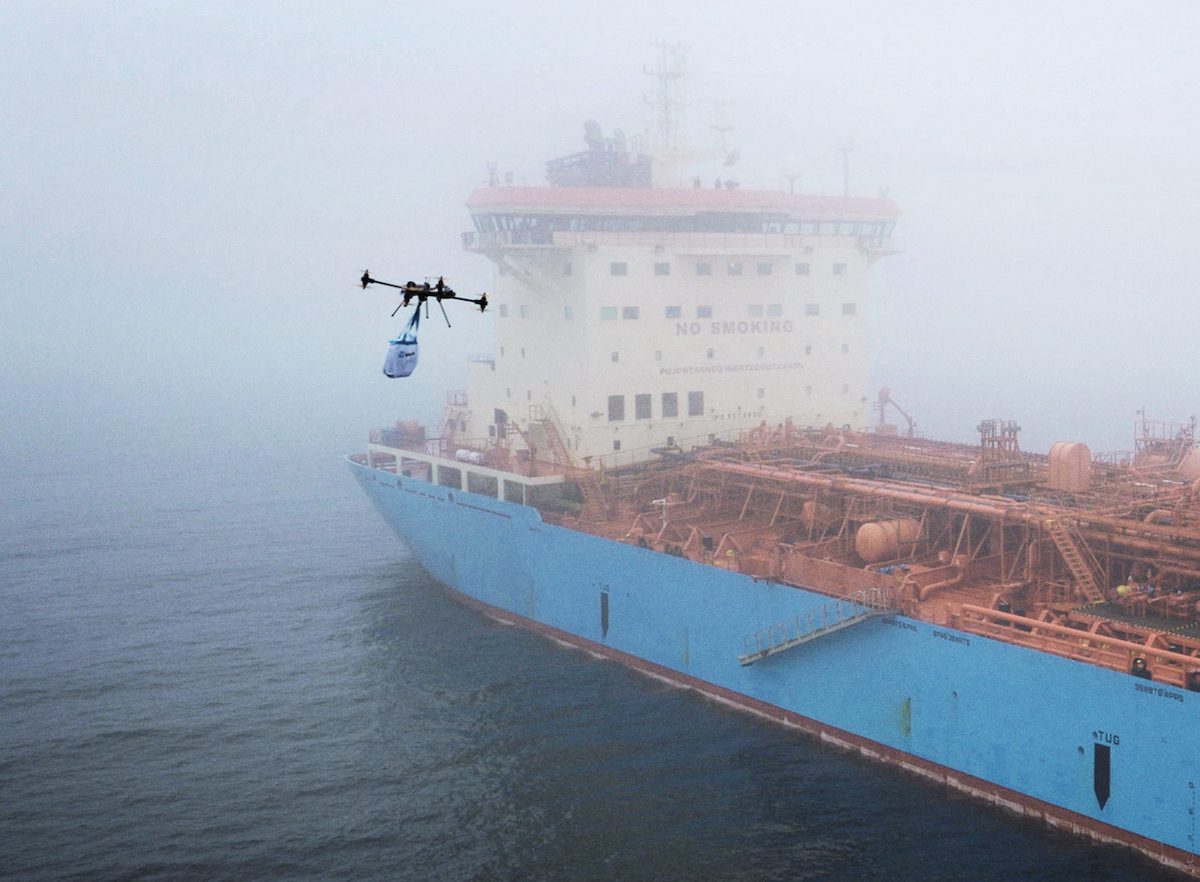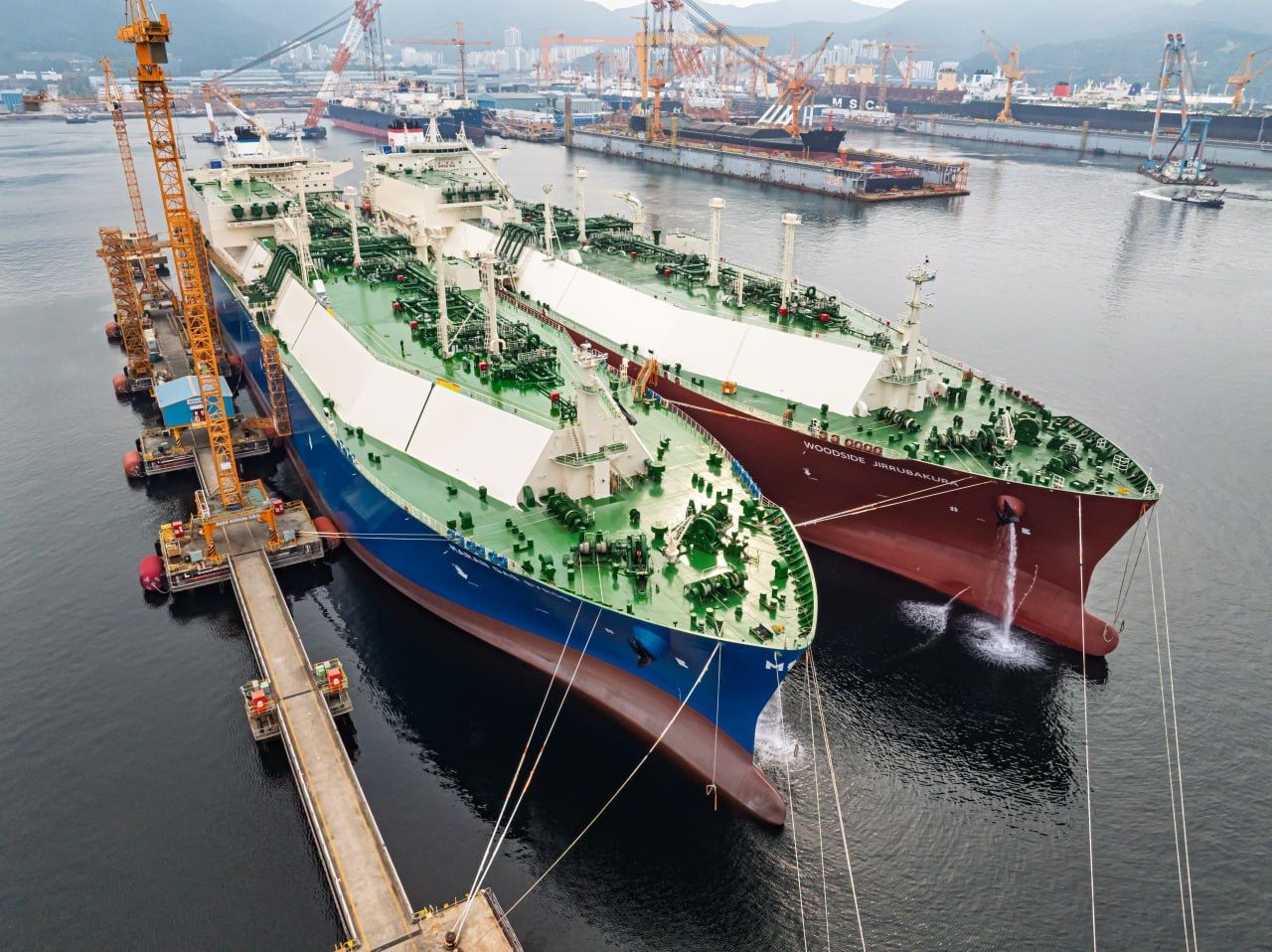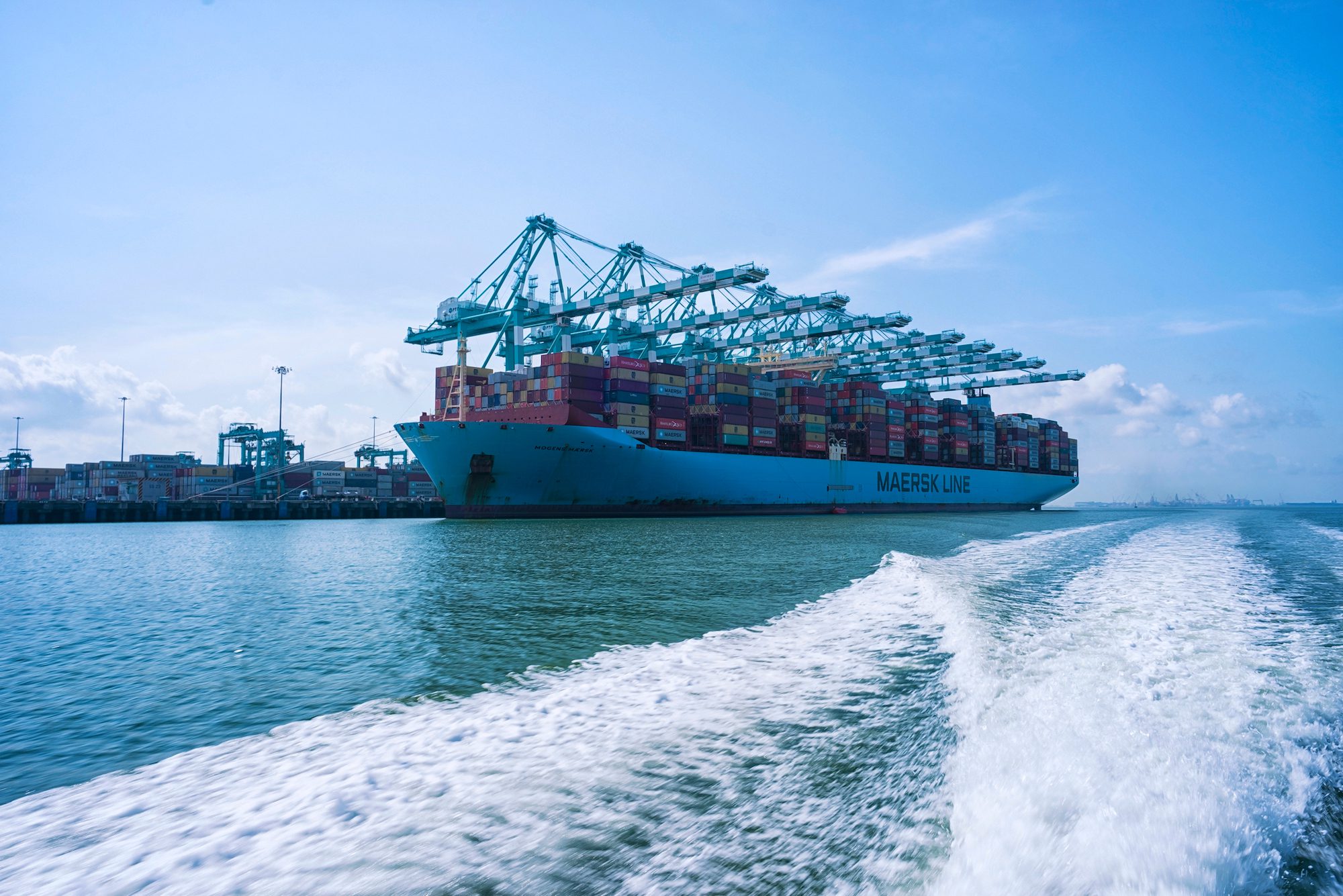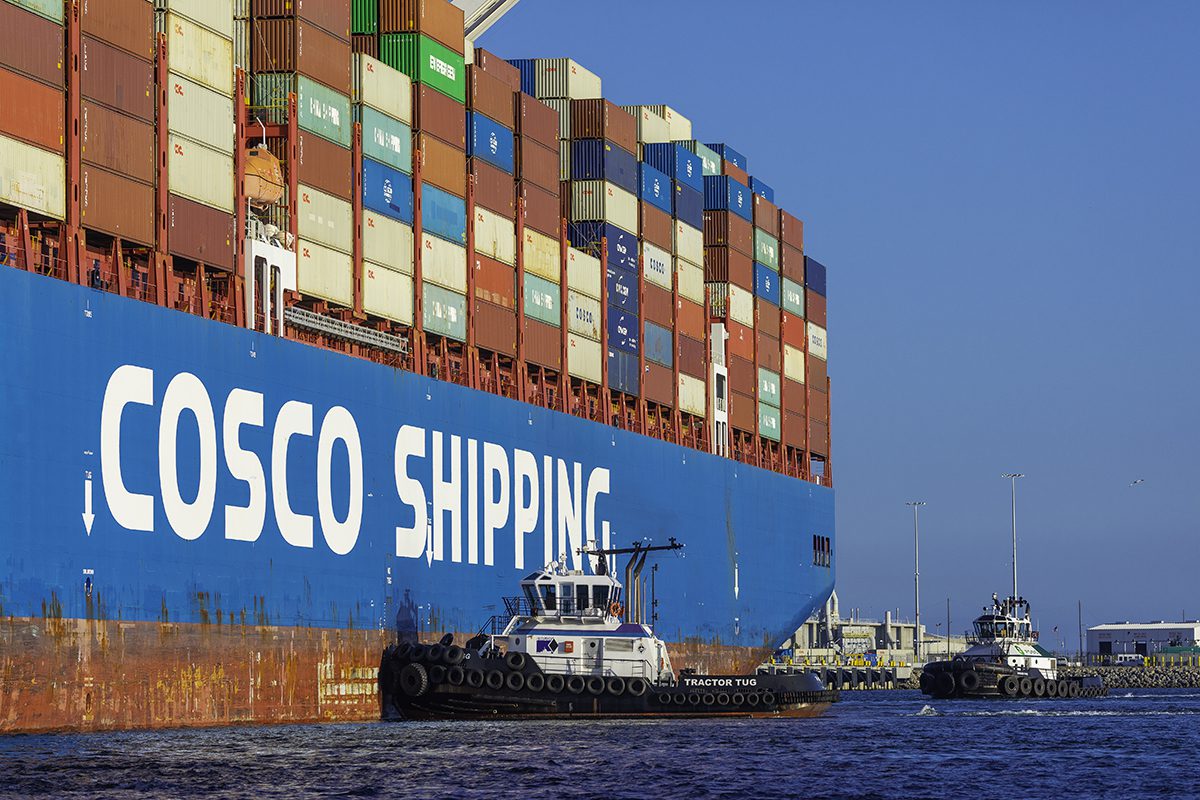A drone flies towards Maersk Tankers’ ship Maersk Edgar. Photo credit: Maersk Tankers
Maersk Tankers says that it has completed the first drone delivery to a vessel at sea as part of a test to see whether or not drones can become a part of the supply chain.
The company says the test delivery took place near Kalundborg in Denmark and involved a drone dropping a small parcel to one of its tankers. Due to weather, the drone could not be launch from shore as planned, but rather was launched from a nearby tugboat, which dropped the package from a hight of 5 meters above deck.
Maersk Tankers is hopeful that the by using drones it can significantly reduce the cost of delivery of small parcels filled with urgent spare parts, mail or medicine, when compared to using traditional methods of delivery.
“Costs for a barge are on average USD 1,000 and can easily go up to USD 3,000 or more” says Markus Kuhn, Supply Chain Manager at Maersk. “With the current pay-load of drones, on average a vessel has 3 cases per year in which the barge transport could be substituted by a drone – meaning a potential avoidance of barge costs of USD 3,000-9,000 per vessel per year. And if you consider that Maersk Tankers has around 100 vessels, the savings potential could be substantial.”
The ATEX-approved (zone 2) drone used in the test was provided by the French company Xamen and the test was approved by the Danish authorities.
Maersk says that in addition to delivery, drones have the potential to be used for other business purposes such as inspections (e.g. to take high quality photos or videos of certain areas to identify cracks).
Above all else, Maersk says that before any widespread use of drones within its business, the company needs to ensure the safety of the technology being used.
“It is fundamental that any drones used by Maersk Tankers are safe for the environment they are operating in. They must be certified as intrinsically safe for most tasks, so they cannot create any spark, even if they were to crash. Some inspections can pose risks if performed by humans. If drones are approved for tank inspections, it will improve safety on tankers and potentially in other oil-related installations,” says Markus Kuhn.

 Join The Club
Join The Club











